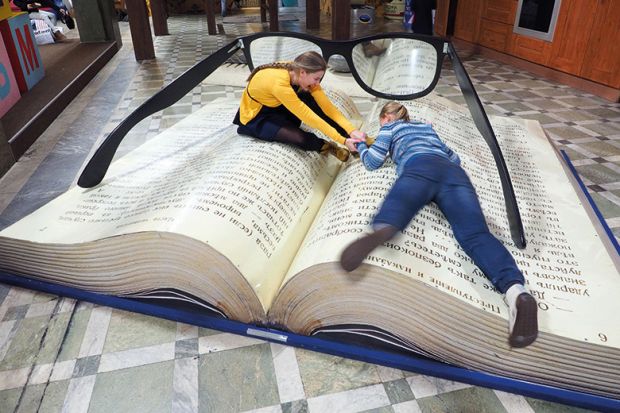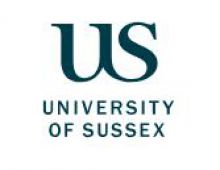Academics should stop using the term “reading list” because it leads to an over-reliance on paper-based books and sidelines online learning materials, a senior university librarian has argued.
Criticising an “obsession” with reading lists, Jane Harvell, head of academic services and special collections at the University of Sussex, said they cause lecturers to create courses in which electronic resources and technology-assisted learning are only an afterthought.
“I would like the phrase ‘reading list’ to disappear altogether,” Ms Harvell told Digifest, a two-day conference organised by the technology consortium Jisc, which took place in Birmingham on 14 and 15 March.
Speaking to Times Higher Education at the event, Ms Harvell explained that the centrality of reading lists means technology-enabled learning has become “separate” from the body of literature covered by lecturers.
“We need to get away from the idea that you create a reading list for the module and then design the course around it,” she explained, saying educators should think more about technology when designing courses.
The term “reading list” is particularly unhelpful because it is “overwhelmingly linked with a list of printed books”, Ms Harvell added.
“We should stop thinking about it in this way – a reading list can be a chapter available electronically or simply an image,” she explained.
The concept of the “reading list” is also somewhat obsolete because “students are not toddling across the library” to borrow titles and are often accessing resources remotely instead, Ms Harvell added.
Embracing the use of electronic resources is also vital because budgetary restraints mean it is impossible for university libraries to stock sufficient copies of required texts, she added.
Librarians are sometimes told two weeks in advance what titles will be on the reading list, Ms Harvell explained. “There can often be hundreds of books on these lists,” she said. “We cannot afford to buy so many copies and students are not going to buy them,” she added.
However, the electronic textbooks that are currently on offer do not always suit the needs of students as they cannot interact with them as they might a physical copy of their own, Ms Harvell said.
“Students want to pull out chunks of text or scribble on these texts, but they can’t in their current form,” she said. “There must be ways to do clever things with these digital resources which students want, but the big publishers that universities use tend to be very conservative."
“Some small edtech companies are doing exciting things, but the bigger higher education institutions don’t want to take risks so they stick with the larger providers,” she added.
Register to continue
Why register?
- Registration is free and only takes a moment
- Once registered, you can read 3 articles a month
- Sign up for our newsletter
Subscribe
Or subscribe for unlimited access to:
- Unlimited access to news, views, insights & reviews
- Digital editions
- Digital access to THE’s university and college rankings analysis
Already registered or a current subscriber?









